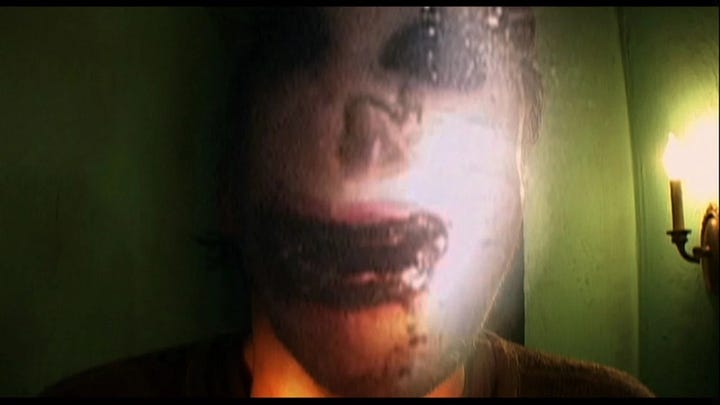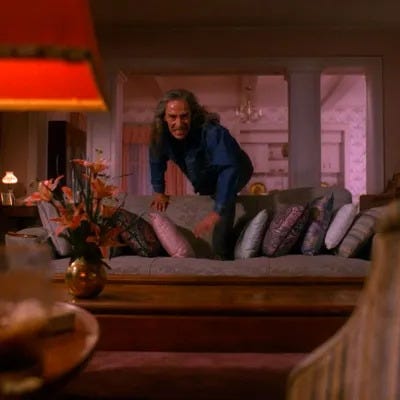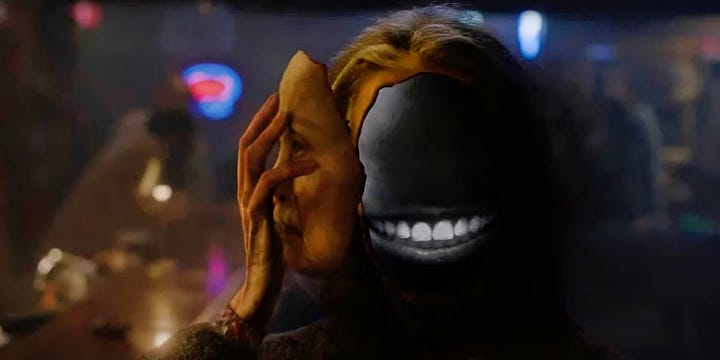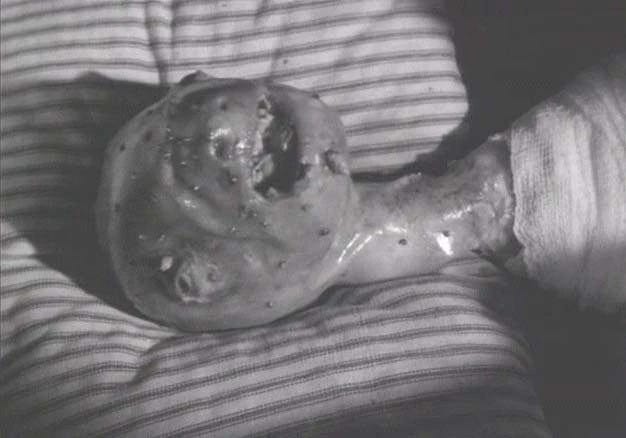RIP David Lynch
A director whose influence can be felt in all parts of popular culture. He will be sorely missed.
Hello,
I’ve never done one of these before, and I don’t know exactly what I want to say. I just know I had to say something briefly, though I needed a few days to put my feelings together. This is also hard because I never met this man and could never be the perfect biographer of his life, but he has had an effect on my life.
Last Thursday, director David Lynch passed away. He was 78. Along with directing 10 feature films, Lynch was a painter, musician and so much more. He created genre and narrative-breaking films, incorporating avant-garde and surreal techniques into American pop culture. All the while, he made one of the most popular and consequential TV shows of its day, Twin Peaks.
While there’s plenty of hyperbole around Lynch, his films and the adjective “Lynchian,” I don’t think it’s a stretch to say he was one of the great American artists of the 20th and 21st century. Not just filmmakers. Artists.
In 2024, I had been going through all of Lynch’s films1 to complete the filmography for a podcast I love listening to. Additionally, I went through the first two seasons of Twin Peaks, the 1992 prequel film Fire Walk with Me and the third season miniseries, The Return. What I found was truly illuminating and mind-breaking at times in the best ways possible.
Plenty of academics, cinephiles and film scholars spent lifetimes studying Lynch’s works and trying to parse what exactly he is trying to say. For example, David Sims of The Atlantic, in his eulogy of the director, called Lynch America’s “cinematic poet.” My favorite film of Lynch’s, Blue Velvet, portrays the beauty of Americana while also revealing a dark underbelly full of some of the most terrifying criminals and scoundrels ever shown on the silver screen. In Twin Peaks: The Return, possibly the greatest season of television ever that scoffs at most forms of nostalgia, we find an America that feels like a liminal space full of evil.
But, not that this is an original point, what makes Lynch strike at my heart almost more than any other director is how he portrays humanity and our subconscious on screen. He seemed so in-tuned with how to translate our dream worlds into compelling, beautiful and, plenty of times, terrifying cinema.
Some of the images he was able to conjure shook me to my very core. These are just some of the few examples. Sorry if this is a jumpscare for anybody lol. I just want to literally show you what I mean.




Pretty scary right?
And yet, Lynch also had the ability to create some of the most heartwarming images and scenes in the history of entertainment. Take this scene from The Return, where an older Bobby Briggs, once a bad boy and former boyfriend of Laura Palmer, sees a picture of her old lover. In what could be described as maybe one of the two moments of nostalgia in the third season of Twin Peaks, Lynch uses it to humanize a supporting character that was so stuck in a box of being known as “the bad boy.”
That’s what made Twin Peaks so rewarding, characters that seem like stock-type, generic characters have various shades to them. Take Bobby’s dad, Major Garland Briggs, who was a military man but also was so open to the spiritual side of the world and talking about his dreams.
But if there were any two Lynch films that really spoke to me, they are undoubtedly Blue Velvet and Twin Peaks: Fire Walk With Me. The former is so much more rewarding than just saying it’s Lynch revealing the dark side of America, though it definitely does that. Lynch’s own view of the material comes through when the main hero, Jeffrey, asks why there is so much evil in the world. Lynch is calling out or screaming this into the void, which feels relatable given the state of how divided our country is and how many tragedies seem to befall the world. It can all feel like it’s too much, and Lynch had his pulse on that feeling I have.
Meanwhile, in Fire Walk with Me, we painfully watch Laura Palmer lose herself and her personality as more evil and horrifying acts happen to her. Even before she is murdered, she has completely frayed. I can’t obviously relate to some of the actions that happen to her (though many women unfortunately can), but I found some form of visibility when it came to losing sight of yourself. Sometimes, I find it hard to know who I am, what I want to be in the world and how I’m supposed to feel about things. Sometimes I just don’t know. I really don’t know. Lynch feels like he understands, which is why the ending of the film nearly pushes me to tears every time.
I’ll leave you with probably my favorite piece of music from any of his films. It comes from the late great Angelo Badalamenti. Hopefully, the two are hanging at the Bob’s Big Boy in the sky. Just remember to keep your eye on the donut today.
For those of you who are curious or may not have seen all of them, here is Lynch’s filmography in order: Eraserhead, The Elephant Man, Dune, Blue Velvet, Wild at Heat, Twin Peaks: Fire Walk with Me, Lost Highway, The Straight Story, Mulholland Drive and Inland Empire.



